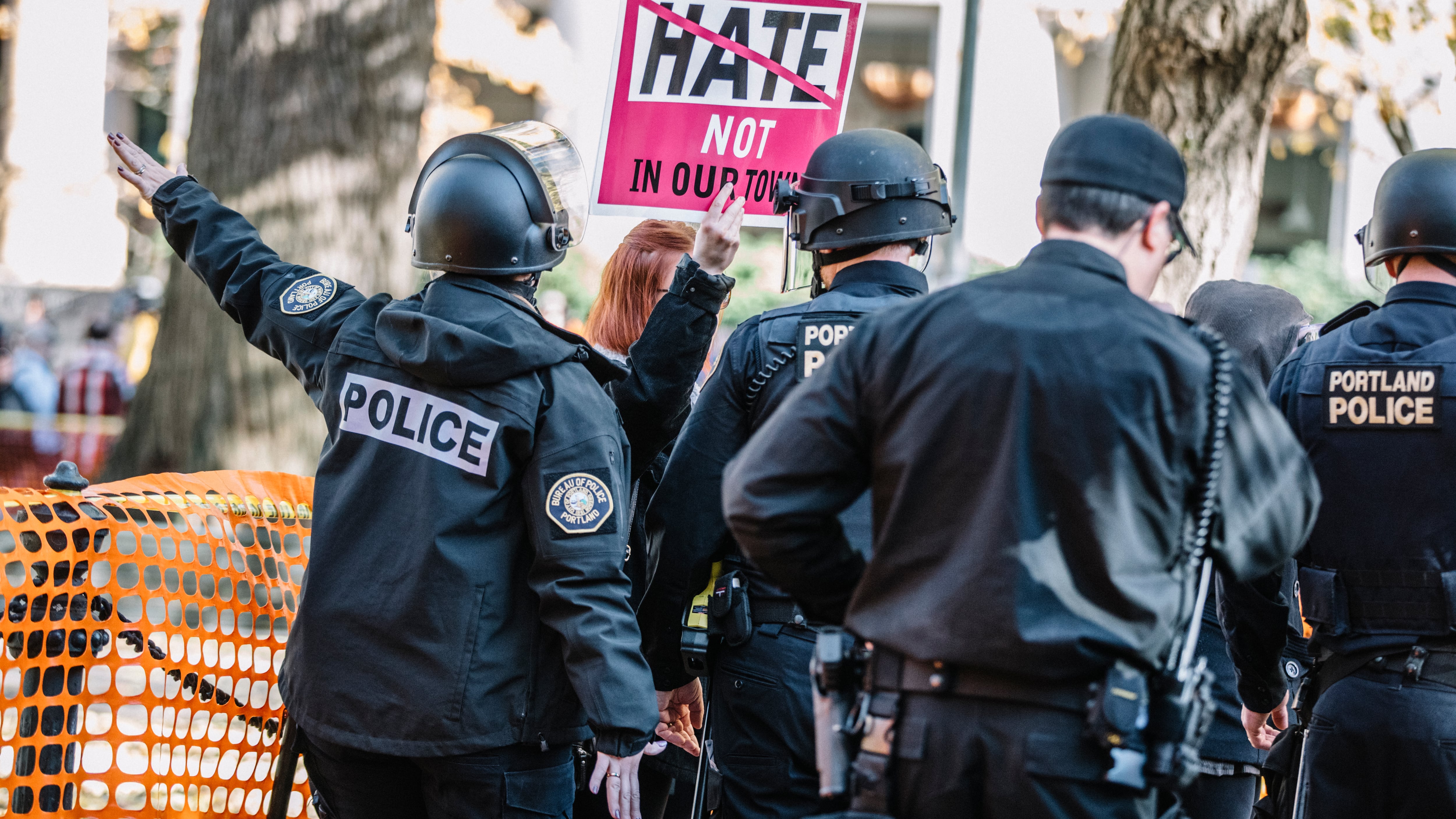Portland Mayor Ted Wheeler's communications staff asked a select group of reporters to sign non-disclosure agreements to gain access to the Portland Police Bureau's command staff during a right-wing protest on Nov. 17.
An email exchange from Nov. 14 obtained by WW via a public records request provides more insight into the terms of an offer by the mayor's office to allow selected reporters to enter the police's nerve center during the latest in a series of fraught protests. The Portland Mercury first reported last month that a few reporters had been picked.
No news organization ultimately attended.
In the emails between the mayor's communications director Eileen Park and a KGW reporter, Park offered exclusive access to the Portland Police Bureau's Incident Command Post, or ICP, and asked the TV station to sign an agreement to allow the city to dictate what it would publish. Park offered similar access to hand-picked reporters from The Oregonian and the Portland Tribune.
Portland Tribune editor Vance Tong says the mayor's office didn't ask the newspaper to sign an NDA because the reporter invited to observe ICP had a scheduling conflict. Tong says the paper would have declined such an NDA.
"It's an effort to provide more access, transparency, and to show the public what goes into the decision making and planning process prior to and during these protests," Park wrote. "But because a lot of what you will be hearing and observing is confidential, we will have to get a NDA signed by both you and the photog—which our attorneys have drafted."
(The city did not provide a copy of the draft NDA in response to WW's records request.)
The offer included another key restriction: A police officer would decide what the reporter could tell the public.
"Lt Craig Dobson will be your liason [sic], and can guide when and what you will be able to tweet and share," Park continued.
The offer shows the mayor's office trying to craft a more positive view of police actions after months of critical news coverage surrounding protests. Protests organized by Vancouver, Wash.-based group Patriot Prayer and frequented by right-wing extremists like the Proud Boys have for two years troubled city leaders and attracted antifascists eager to fight.
Wheeler faced backlash after police fired riot control agents into a crowd of antifascist counter-demonstrators on Aug. 4. In October, when officers stood by as black-clad protesters briefly blocked traffic, right-wing media including Fox News harangued the mayor for allowing "mob rule" in the streets.
In the midst of blows from both political extremes, the mayor's office tried to pass a controversial ordinance that would have given Portland police more authority to control when and where protest groups with a history of violence could gather.
His office also decided to grant some media a look inside police decisions.
"We decided on the reporters based on their history of being tough, factual, fair and consistent," Park says. "I had one sincere intention, to open up more opportunities for journalists to see what happens within the Police Bureau."
Text messages between Park and the reporter show that KGW declined the offer and refused to sign the NDA. The reporter called the NDA "unprecedented".
Park stands by that aspect of the decision.
"I know that is not common for NDAs to be requested," Park says, "but this is a very unique situation where confidential, highly sensitive information is being shared."
After at least one news organization rejected the invitation, the mayor's office rescinded the offer and declined to provide access to the command post to any journalists.
UPDATE: This story has been updated to reflect comments from the Portland Tribune.

